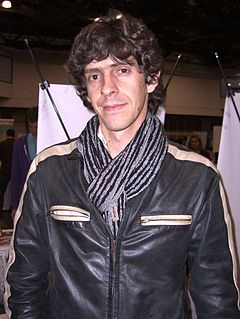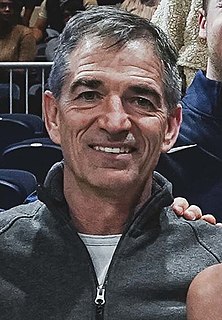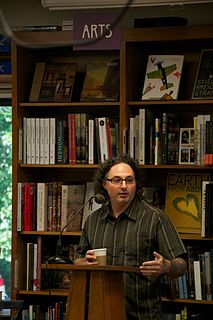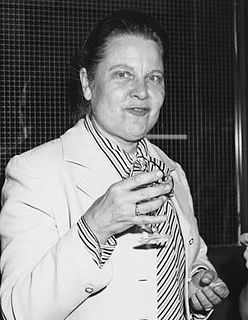A Quote by Rae Armantrout
Like most of my poems, 'Lie' has several sources: I read a very troubling book called The Sixth Extinction. I took note of the way people, including me, enjoy talking knowledgeably about how the world will end. I drove to Tucson and saw the desert flowering on either side of the road. And I glanced at my spam to see what people wanted to sell me these days.
Related Quotes
I read everything. I'll read a John Grisham novel, I'll sit and read a whole book of poems by Maya Angelou, or I'll just read some Mary Oliver - this is a book that was given to me for Christmas. No particular genre. And I read in French, and I read in German, and I read in English. I love to see how other people use language.
Whenever I hear an American say Aussies drive on the 'wrong side of the road,' I just lose it. You ever think about how those people grew up driving on the 'wrong side of the road,' watched a lot of people get hurt on the 'wrong side of the road,' die on the 'wrong side of the road,' while other people cheered from the 'right side of the road'? Australia has a thing called Highway Fights, so it's touchy.
In the end, we learn about the most basic philosophical questions - like "How to live?" - from a broad mixture of sources, including literature and philosophy, history and anthropology. These sources can guide our reflections on our own experiences, as we explore and reconsider. Mann contributed to such explorations in a distinctive way, and I hope my book brings that out.
I don't think about the record, because winning games has to be our focus, and if we lost focus thinking about that record, I would really regret it. How will I feel later on? People tell me it will mean a lot after I retire, for the kids and me. But to me, it's just a stat. It's something people enjoy talking about. Me? I just enjoy playing.
I'm an anxious person in general, but something about being pregnant and awaiting the release of my first book, The Monsters Of Templeton, made me into an insane anxious person. I didn't sleep at night. I ended up sleeping all day. In a strange way I felt like the world was going to end. I found myself so deeply depressed at times that I started to read about happiness, and that took me into books about idealism and utopianism. Reading books about people who tried to build utopian societies of different kinds gave me a kind of lift.
What I am most proud of with the book On to the Next Dream is how I turned an intensely emotional experience into art. Anyone can run up to a rooftop, tear off their clothes, and scream about how screwed up the world is. But for the people down below, all they see is a person losing their mind. I wanted to make something that channeled that emotion in a way that elicited an empathetic response from the reader. So that after you read this book, you would want to run up to the rooftop and scream about how screwed up the world is.
I am very bad at remembering the books I've read and so recently I had a wonderful experience. I decided I wanted to teach Toni Morrison's The Bluest Eye. I hadn't read it in twenty-five years. I was surprised to find how much I drew from that book. Stole from that book, learned from that book about writing. I had forgotten and there it was. Morrison has called that text faulted. I cannot see how.
I was at a book convention, in a cab. On one side of me was Arthur Schlesinger; on the other side was William Manchester - real heavyweights. All they were doing was asking me about Charles Manson. The only thing that enables me not to be bored is the people talking about it - they're so interested.
All I wanted was to live a life where I could be me, and be okay with that. I had no need for material possessions, money or even close friends with me on my journey. I never understood people very well anyway, and they never seemed to understand me very well either. All I wanted was my art and the chance to be the creator of my own world, my own reality. I wanted the open road and new beginnings every day.
I think most micro-brewers/craft-brewers are similar in that they enjoy making something themselves and at the end of the day they can enjoy the fruit of their labor. Most people really enjoy the process of making beer and like the industry as a whole. We often are passionate about what we do and enjoy talking to people about the art and science of making beer.
Cormac McCarthy is my favorite author in the world. I love him so much. There's one book that informs me more than The Road - it's called Suttree. That book is a huge influence on me. I'm not smart enough to emulate him, but he inspires me. He never infiltrates my writing directly. He writes incredibly intelligently about people that are marginalized.







































